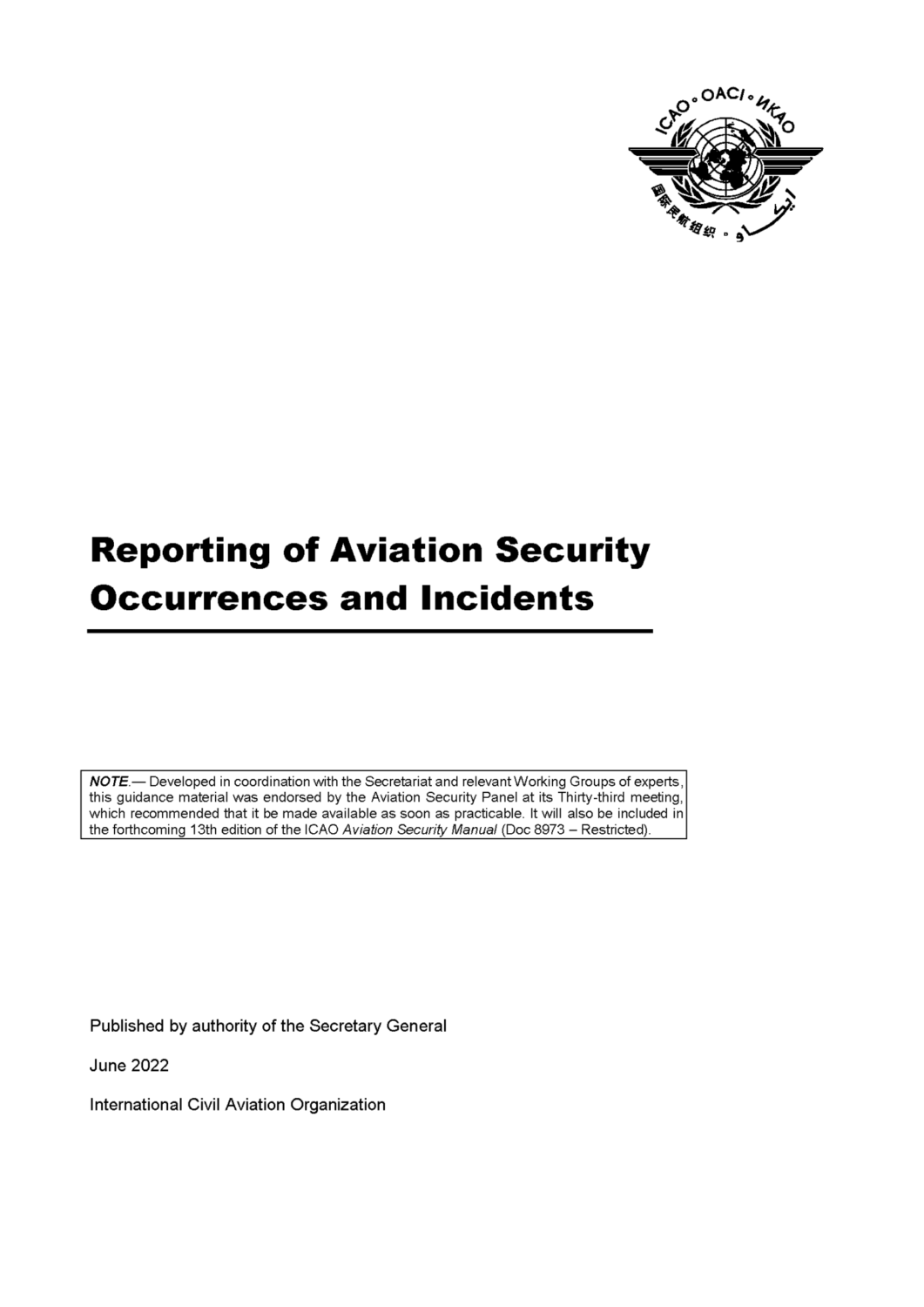As mandated by Annex 17 – Aviation Security, States must ensure that their national civil aviation security programme defines processes for the reporting of information concerning incidents of acts of unlawful interference and preparatory acts thereto, by any entity responsible for the implementation of the national civil aviation security programme in a practical and timely manner to the relevant authorities.
 To assist stakeholders in this endeavour, ICAO developed guidance material in cooperation with members and observers of several Aviation Security Panel Working Groups. A common taxonomy was also established to structure and harmonize the reporting process of aviation security occurrences and incidents. The material was endorsed by the Aviation Security Panel at its Thirty-third Meeting in May 2022.
To assist stakeholders in this endeavour, ICAO developed guidance material in cooperation with members and observers of several Aviation Security Panel Working Groups. A common taxonomy was also established to structure and harmonize the reporting process of aviation security occurrences and incidents. The material was endorsed by the Aviation Security Panel at its Thirty-third Meeting in May 2022.
“The reports should be prepared in a harmonized manner to ensure practical reporting, while considering the protection of sensitive aviation security information. Therefore, this guide aims to assist all stakeholders in developing, implementing, and maintaining an effective and efficient reporting system for security occurrences and incidents”, remarked Sylvain Lefoyer, Deputy Director, Aviation Security and Facilitation, Air Transport Bureau of ICAO.
As threats to civil aviation are constantly evolving, it is paramount to keep up with changing environments, operational requirements, and regulatory obligations in order to mitigate the threats and risks to the international civil aviation system as a whole. The Incident Reporting Guidance and Taxonomy will be updated accordingly and as necessary.
The air passenger experience involves many requirements which countries must address relating to effective travel document and border management, information sharing and the identification of high-risk travellers, the screening of people and cargo for security purposes, global anti-terrorism objectives, and many other inter-related priorities.
Because of the overlapping and complementary nature of these programmes and activities, governments have formalized Security and Facilitation as a joint and official Strategic Objective for international aviation, and they continuously pursue new strategic planning and other policy and standards innovations through ICAO to address their latest challenges.

